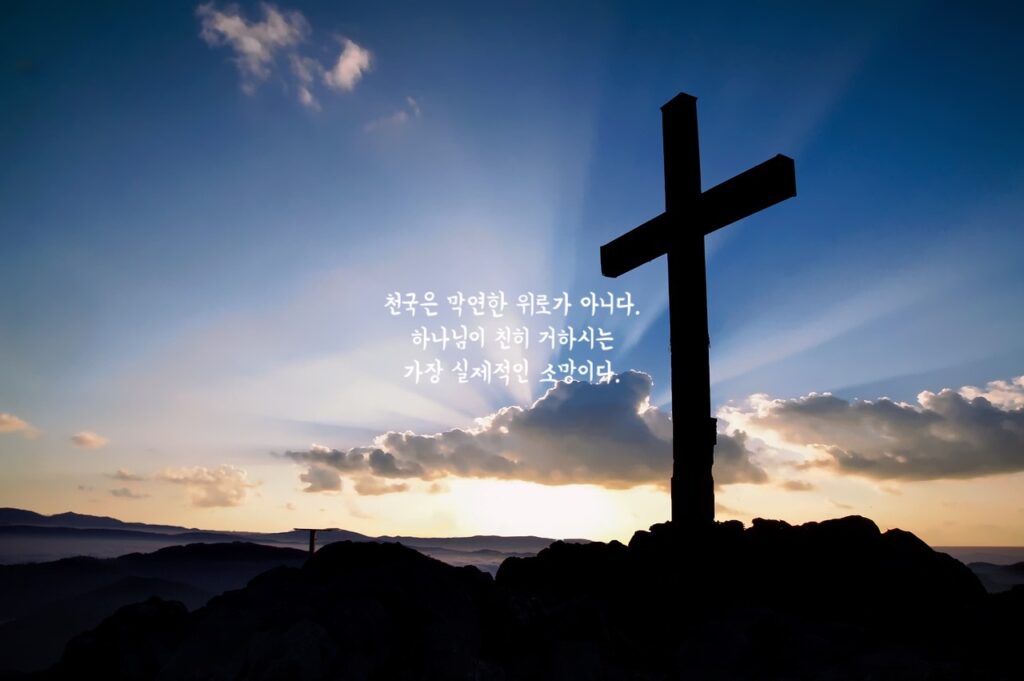In Christian eschatology, few terms are as frequently mentioned—and as widely misunderstood—as “the Rapture.”
Many imagine it as a sudden event where people are mysteriously swept into the sky, a scene often dramatized in films, novels, and online content that sensationalize end-time fears. But despite its popularity, the true nature of the Rapture as revealed in Scripture is often overlooked. The Rapture is not merely an end-time scenario, but a theologically grounded event rooted in the Bible. This article examines the concept, biblical foundation, timing, recipients, and practical significance of the Rapture for believers today.
What Does “Rapture” Mean?
The term “Rapture” is derived from the Latin word rapturo, meaning “to carry off” or “to snatch away.” Though the word itself does not appear in Scripture, the idea is most directly conveyed in 1 Thessalonians 4:16–17:
“For the Lord himself will come down from heaven, with a loud command, with the voice of the archangel and with the trumpet call of God, and the dead in Christ will rise first. After that, we who are still alive… will be caught up together with them in the clouds to meet the Lord in the air…”
The phrase “caught up” is translated from the Greek word harpazō, which means to seize or snatch away by force. In the Latin Vulgate, this word became rapturo, forming the basis of the English term “Rapture.”
The Rapture, then, refers to the moment when Jesus Christ returns and the believers—both resurrected and living—are caught up to meet Him in the air. More than a supernatural phenomenon, it is the final stage of redemption promised to those in Christ. Scripture states it will happen “in a flash, in the twinkling of an eye” (1 Corinthians 15:52)—a sudden, global event that cannot be predicted or prepared for by human means. It is both a day of judgment and salvation: the fulfillment of long-awaited hope for believers and a point of no return for those who reject the gospel.
When Will the Rapture Happen?
This question has generated much debate within Christianity. Some key views include:
-
Pre-tribulation Rapture: The Rapture occurs before a period of great tribulation on earth.
-
Mid-tribulation Rapture: It takes place in the middle of the tribulation period.
-
Post-tribulation Rapture: The Rapture and the Second Coming occur together at the end of the tribulation.
These interpretations differ based on how one understands biblical prophecy. However, Jesus Himself said in Matthew 24:36, “No one knows the day or the hour.” Even Christ, during His earthly ministry, deferred knowledge of the exact time to the Father alone. Therefore, the central issue is not to calculate the timing but to live each day in readiness.
Who Will Be Raptured?
The Bible specifies that “the dead in Christ” and “those who are alive and remain” will be taken. This is not simply about church attendance, but about true faith and rebirth in Jesus Christ—those who have repented, been sealed by the Holy Spirit, and walk in obedience.
Jesus’ parable of the ten virgins in Matthew 25 illustrates this well. Five virgins had lamps but no oil—symbolizing those with outward religious appearance but lacking the inward readiness of true faith. Only those prepared were welcomed into the wedding feast. It is a call to a life of genuine repentance and spiritual alertness.
The Rapture Will Shake the World
Scripture suggests the Rapture will be a dramatic and public event. Luke 17 says, “Two people will be in one bed; one will be taken and the other left.” Matthew 24 echoes this language: “Two will be in the field; one will be taken and the other left.” The Rapture is not an abstract, spiritual metaphor—it is a visible and distinguishing act of God in human history. It is a dividing line between grace and judgment.
Today, many churches hesitate to teach about the Rapture, fearing accusations of fear-mongering or past prophetic failures. But Scripture does not tell us to be afraid—it tells us to be comforted. 1 Thessalonians 4:18 commands, “Therefore encourage one another with these words.” For believers, the Rapture is not a threat but a blessed hope. Jesus promised in John 14, “I go to prepare a place for you… I will come back and take you to be with me.” That promise is the Rapture. Believers do not set their roots in this world. Our citizenship is in heaven (Philippians 3:20), and the day Jesus returns to bring us home is the fulfillment of all our waiting and suffering.
A Sign of Love, Not Fear
The Rapture is a sign of God’s mercy. Like Noah’s ark and Lot’s escape from Sodom, God removes His people before judgment. But the door is not always open. Those who hear the gospel now and do not respond will face even greater judgment after the Rapture. Revelation calls that time “the great and dreadful day of the Lord.” Now is the day of grace—the Rapture is the closing of that window.
Therefore, believers must live in a state of spiritual readiness. Jesus repeatedly says in Matthew 24, “Be watchful.”This means not merely staying awake physically, but living in spiritual vigilance—walking in repentance, grounded in the Word, and filled with the Spirit. The Rapture is not a day of fear, but the culmination of our hope. On that day, as Christ promised, He will take us to a place where there is no more death, no more pain, and no more tears.
The Rapture reveals God’s heart of love—calling His people home before the final judgment falls. But it is also a reminder: grace has a time limit. That is why today is the time to repent, to believe, and to prepare.
Maeil Scripture Journal | Bible Knowledge Plus




